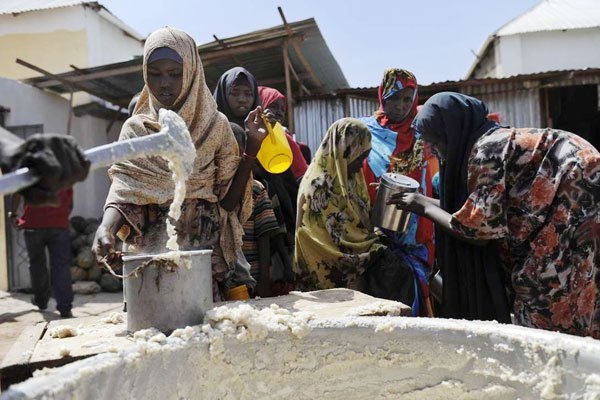With the latest analysis showing that Somalia’s main harvest was the worst since the famine in 2011, humanitarian agencies are calling for sustained funding for the country.

Under-Secretary-General for Humanitarian Affairs and Emergency Relief Co-ordinator Mark Lowcock last week Thursday called for continued support to protect recent gains made in beating hunger and reiterated the importance of the Government’s Resilience and Recovery Framework, which is key in efforts to end recurring humanitarian crises in Somalia.
He was speaking at the end of a two-day mission to Somalia with the World Bank Group’s senior vice president for the 2030 Development Agenda, United Nations Relations and Partnerships, Mahmoud Mohieldin, and the UN Assistant Secretary-General for Peacebuilding Support, Oscar Fernandez-Taranco.
“The latest food security analysis for Somalia shows that our response is working. One million fewer Somalis are hungry today than had been projected because we acted early and because aid workers are able to deliver,” said Mr Lowcock.
“The analysis also showed that the harvest from the April-June crop season is the worst since 2011 because of poor and erratic rains, followed by flooding at the end of the rainy season. As a result, up to six million people are now projected to be food insecure over the coming months. A third of them will be severely food insecure without sustained aid. And climate-related events will continue to have deleterious effects.”
Over the past 30 years, droughts have become more intense and frequent in the country, which also faces recurring flooding during the rainy seasons. Much of Somalia’s infrastructure is dilapidated as a result of the decades-long conflict and lack of investment, which further undermines the country’s ability to cope.
Source: The East African


